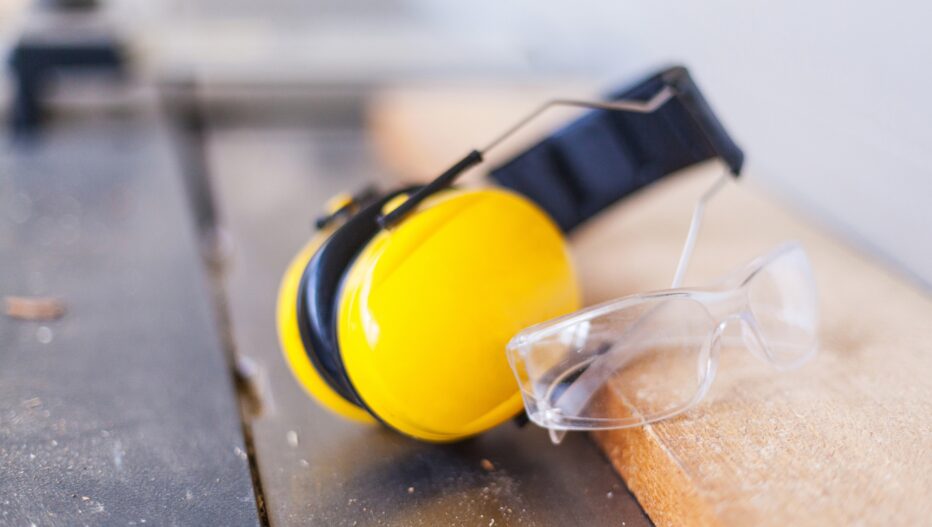YRITTÄJÄ, tule mukaan omiesi pariin! Liity Yrittäjiin.

What insurance does and doesn’t cover when business owners have accidents on the job
A business owner’s voluntary accident insurance may not be useful if an accident is not directly work-related.
Under Finnish law, accident insurance for employees is compulsory, but business owners can also insure themselves against accidental damage at work. If they choose to do so, the grounds for compensation are generally the same as in employee accident insurance.
Voluntary accident insurance covers the business owner’s working hours, but many policyholders want to extend the coverage to include leisure time. A business owner may take out such a policy if their statutory YEL pension insurance policy is in force.
Most damage superficial
According to data from the insurer Fennia in 2023, most of the cases at the basis for claims under voluntary business owner’s accident insurance were related to fingers and feet. Typical injuries were sprains, wounds or surface injuries. Most, 70%, were temporary damage which caused 0–3 days of work incapacity.
Statistics from the Finnish Workers’ Compensation Centre show that business owners had 4,277 accidents at work in 2022. It is not possible to completely break down the statistics into business owners from other people who work independently.
What counts as an accident?
An accident is typically defined by insurance policy clauses as a “sudden, external and unexpected” event which causes injury or illness. That means accidents could be a slip or a fall, for example. The accident must happen at work, at the site of work, or outside the site of work with a demonstrable causal link to the accident.
“External factor means an independent external factor such as a slippery street, a bumpy road, a falling object, or a splashing substance. If someone cuts their finger with a knife at work, that’s almost always covered by the policy because it happened at work and the person was doing that job for their work,” says Kirsi Flyckt, a service manager at Fennia.
The suddenness condition, in turn, is met when a person falls off a roof or slips in the workplace during working hours. However, Flyckt points out that all claims are always assessed on a case-by-case basis.
When insurance does not pay out
If the aforementioned situations are not related to a person’s work, the resulting damage is not covered by insurance if it could have happened in the business owner’s home or another area that is primarily for the business owner’s personal use.
Flyckt gives an example.
In one case, an exercise instructor was doing a choreography movement which involved jumping back and forth. She twisted her knee. Her accident insurance didn’t cover the accident.
The policyholder took the matter to the Accident Appeal Board. The Board decided that it was not an accident because the movement which caused the injury was not due to a surprising or certain external factor, such as slipperiness.
If a business owner cuts their finger while slicing a cucumber during their lunch break at home or in another location primarily at the private disposal of the business owner, this is not a work duty, Flyckt says, nor is it covered by the insurance policy.
Safety shortcomings can reduce payout
If a business owner is travelling from one work location to another and injures themselves on the way, this may be an eligible claim under the insurance policy.
For example, if a business owner slips on their way to work in the winter, it is generally an eligible commuting accident claim. In commuting accident claims, the route taken must generally be the straightest possible one. A claim is also usually eligible for payout if a business owner falls off a ladder while performing their work.
Flyckt says that an insurer may reduce the amount paid out for a claim under voluntary accident insurance if it finds shortcomings in occupational safety and health.
“For example, we check on a case-by-case basis whether protective equipment was used when an accident happened. We may pay following a claim when the equipment wasn’t used, but the amount could be lower.”
A payout may also be lower if the claimant was under the influence of alcohol or drugs at the time of the accident.
An insurer may reduce the payout or daily allowance, generally by 20%, 40% or 50%.
Decision may be appealed
If a policyholder is unsatisfied with their insurer’s claim decision, they can bring the matter to the Accident Appeal Board. If the policyholder provides new information, the insurer first reassesses the situation and decides whether to change its decision. If there are no grounds for changing the decision, the matter goes to the Accident Appeal Board.
Insurance can also pay out for occupational illness
If a business owner has been exposed over a long period to a dangerous substance which leads to a diagnosis of an occupational illness, they may be eligible to make a claim under their voluntary accident insurance.
How earning loss compensation is calculated
When a business owner’s voluntary working hours insurance policy pays out earning loss compensation or survivor’s pension, it is calculated on the basis of the YEL income that was in force on the date of the accident.
When does the policy end?
A business owner’s working hours insurance policy ends on the same date as their YEL insurance policy. A business owner may apply to their insurer for extension of their voluntary working hours insurance if they are continuing entrepreneurial activities after they have reached the maximum age for mandatory YEL coverage. In this case, the insurer confirms an annual occupational income for insurance purposes that is at the same level as an annual income corresponding to the business owner’s labour input.
Are you a Suomen Yrittäjät member yet? Read about member benefits and advantages

Pauli Reinikainen
pauli.reinikainen@yrittajat.fi